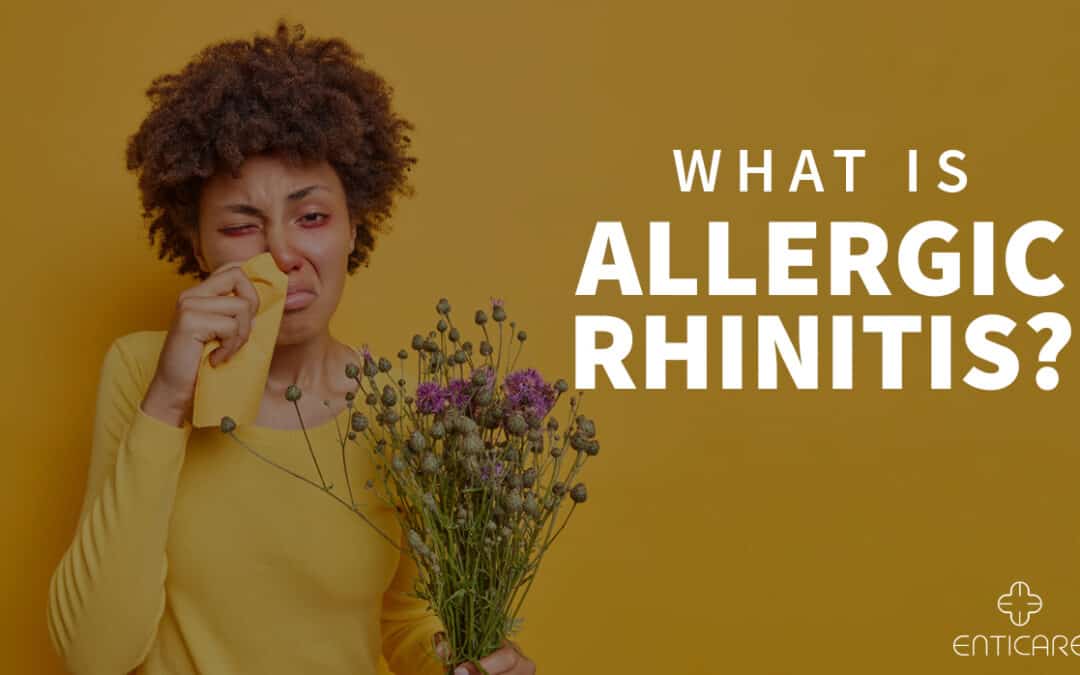Do you struggle with a runny nose, itchy eyes, and sneezing during certain times of the year? If so, you may suffer from allergic rhinitis or hay fever. This condition, often called seasonal allergic rhinitis, is triggered by allergens such as pollen during certain times of the year. This condition affects millions of people worldwide and can significantly impact daily life.
What is Allergic Rhinitis? Symptoms of Allergic Rhinitis
Allergic rhinitis symptoms occur when the immune system reacts to allergens such as pollen, dust mites, pet dander, and mold. When these allergens enter the body, the immune system releases histamine and other chemicals that cause inflammation and swelling in the nasal passages, leading to the characteristic symptoms of sneezing, runny nose, itching, and congestion.
Hay fever symptoms can vary in severity, including persistent sneezing, nasal congestion, and itchy eyes.
When you breathe in allergens like pollen, dust, or pet dander, your immune system reacts, leading to various nasal symptoms and other allergic reactions. Simple remedies such as nasal washes can effectively manage symptoms for those with mild allergic rhinitis.
Symptoms of Allergic Rhinitis
Allergic rhinitis, commonly known as hay fever, affects millions worldwide, causing uncomfortable symptoms. When you breathe in allergens like pollen, dust, or pet dander, your immune system reacts, leading to various nasal allergy symptoms. Here are some of the most common symptoms of allergic rhinitis:
-
- Nasal Congestion: One of the hallmark symptoms of allergic rhinitis is nasal congestion, which occurs due to mucus production in the nasal passages.
- Runny Nose: Often accompanying nasal congestion, a runny nose results from the overproduction of mucus in the nasal passages.
- Sneezing: Frequent sneezing is a typical response to the irritation of the nasal passages and sinuses caused by allergens.
- Itchy Eyes: Itchy, watery eyes are a common complaint triggered by the release of histamine and other chemicals in response to allergens.
- Postnasal Drip: This occurs when excess mucus drips down the back of the throat, often leading to a persistent cough.
- Coughing: Irritation in the throat and lungs from postnasal drip or direct allergen exposure can cause coughing.
- Itchy Nose: An itchy nose is another common symptom of a body’s allergic reaction.
- Mood Swings and Irritability: The constant discomfort and disruption caused by allergic rhinitis can lead to mood swings and irritability.
- Fatigue body’s ongoing battle with allergens can leave you tired and worn out.
Allergic rhinitis can be triggered by various allergens, including pollen from trees, grasses, weeds, dust mites, pet dander, mold, and insect stings. Depending on the specific allergen, symptoms can be seasonal or perennial. Additionally, allergic rhinitis is often associated with other conditions, such as asthma and eczema, making it essential to manage and treat allergic rhinitis effectively.
By understanding these symptoms and their triggers, you can take proactive steps to manage your condition and improve your quality of life.
Diagnosis and Treating Allergic Rhinitis
In individuals with allergic rhinitis, the immune system erroneously perceives a usually innocuous substance, an allergen, as a threat. In response to the allergen, the immune system releases histamine and chemical mediators, triggering symptoms commonly observed in the nose, throat, eyes, ears, skin, and the roof of the mouth. Diagnosing involves a comprehensive approach, including medical history, physical examination, and allergy testing. Skin prick tests or blood tests pinpoint specific allergens triggering symptoms.
Treating allergy symptoms effectively often involves a combination of medications, such as antihistamines, corticosteroids, and allergy shots, depending on the severity of the symptoms. Various treatments exist to manage, encompassing over-the-counter and prescription medications, environmental adjustments, and immunotherapy. Over-the-counter antihistamines and decongestants offer temporary relief, while prescription medications like nasal corticosteroids, leukotriene modifiers, and nasal sprays provide long-term solutions. Antihistamine nasal sprays, such as Astelin® and Patanase®, are effective alternatives for managing allergy symptoms, particularly in alleviating sneezing and nasal itching.
Minimizing exposure to allergens is crucial in symptom reduction. This involves closing windows during high pollen counts, utilizing air filters at home, and avoiding contact with triggering pets. Nasal saline irrigation and steam, along with the use of a nasal spray, contribute to allergen removal and decreased nasal congestion.
For severe cases, immunotherapy or allergy shots prove effective in treating allergic rhinitis. Gradual exposure to increasing amounts of allergen builds immunity and reduces sensitivity over time.
Living with Allergic Rhinitis
Allergic rhinitis can significantly impact daily life and overall well-being. Effectively managing nasal allergies requires a combination of medication, lifestyle adjustments, and regular consultations with a healthcare provider. Collaborating with a healthcare provider to establish an effective treatment plan and regular reassessment ensures optimal management and symptom reduction.
In conclusion, you can say goodbye to hay fever with proper diagnosis and treatment. If you suffer from symptoms such as sneezing, runny nose, and itchy eyes, it may be time to seek help from one of our providers at Enticare. Contact us at 480-214-9000.

